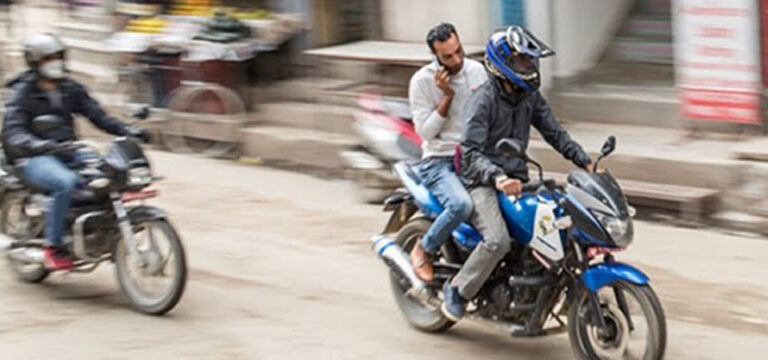
Resumption of ridesharing services starting Tuesday has lifted the spirits of commuters and service providers.
Since April 29, when the three districts of the Kathmandu Valley – Kathmandu, Bhaktapur and Lalitpur – decided to impose restriction to rein in second wave of COVID-19, the ridesharing services, bearing the brunt, went out of business. Because the service has opened the door of self-employment for many unemployed people, thousands have registered with a number of companies providing such services.
The restrictions have finally been lifted, and private vehicles can now ply the road based on odd-even rule starting Tuesday. Following that, in addition to other businesses, ridesharing services have come back to life.
“Allowing only to operate on alternate days doesn’t make much difference. What really makes a difference, however, is that we are allowed to earn. Sitting idle for a day and earning the next day is way better than not earning at all,” said Shyam Kumar, a rider with Pathao.
The companies take a small portion from the rider´s earning, and they are free to work as they wish, allowing to work as much as they can.
Amid the uncertainty surrounding the resumption of public transportation, the easy accessibility of ridesharing service at one’s disposal can go a long way to mitigating the problems caused by out-of-service public transportation.
“Ridesharing service offered by two wheelers is more expensive than public buses but cheaper than taxis. The service is convenient to use and reduces the travelling time, making us reach the destination much sooner,” said Subin Subedi, a banker who arrived in New Road on a Tootle ride on Tuesday afternoon.
Subedi added that ridesharing service is safer in terms of risk of the coronavirus transmission.
With the ridesharing companies ensuring health safety measures to be abided by the riders strictly, the service has been able to win the passengers’ hearts.
The rising demand for the service by the public has also caused many newcomers to enter the business. New names such as Lozoom and T-teet Guru and others have started making their presence alongside the two already-established names – Tootle and Pathao.
The problem facing the companies is that they are still awaiting a regulation from the government, which would then allow them to get registered legally.
The Bagmati Province government made ridesharing service legal in its amended Transportation Act two years ago, but hasn’t been able to enact the regulation yet.
Tootle´s co-founder Sixit Bhatta and Pathao´s regional director Asheem Man Singh had some time ago stressed that once the regulation was enacted and they got to get registered legally, they could upgrade the service to a higher level.
Source : TRN,






